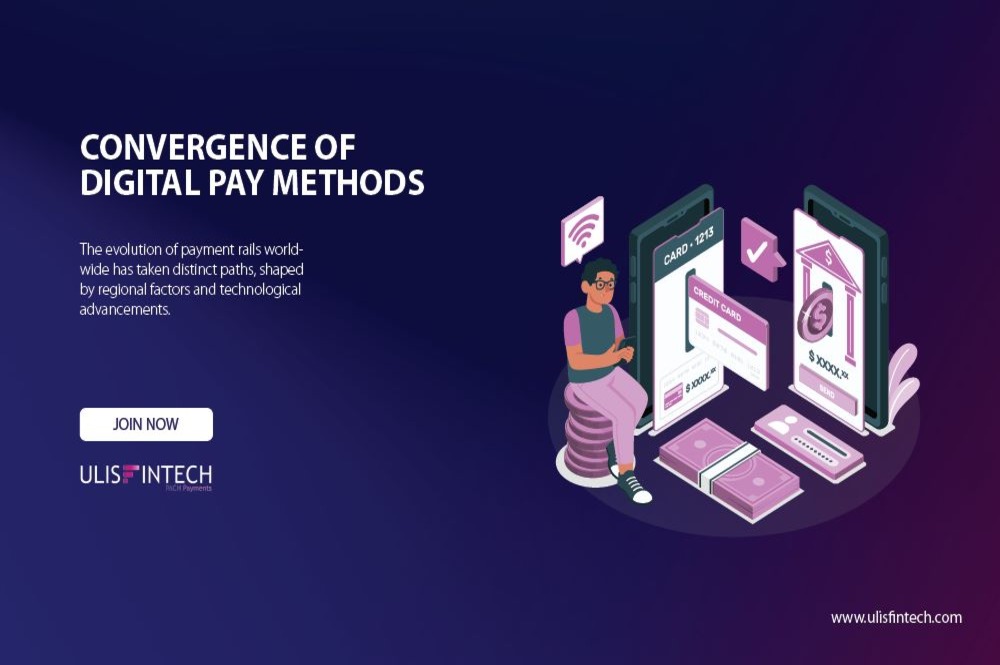5 Fintech Trends to Watch in 2023
Jul 20, 2023 - 6 MINS READ

The financial technology industry is constantly evolving, and there are always new trends emerging. Here are five fintech trends to watch in 2023:
The growth of embedded finance: Embedded finance is a trend where financial services are embedded into non-financial products and services. For example, a car insurance company might offer a payment plan that is embedded into the car's infotainment system. This trend is expected to grow in 2023 as businesses look for new ways to reach customers and provide them with convenient financial services.
There are several reasons why embedded finance is becoming more popular. First, it allows businesses to offer financial services without having to become a financial institution themselves. This can save businesses time and money, and it can also help them to differentiate themselves from their competitors.
Second, embedded finance can make financial services more convenient for consumers. For example, a consumer who is shopping for a new car might be able to apply for a loan directly through the car's infotainment system. This can save the consumer time and hassle, and it can also help them to get a better loan rate.
Third, embedded finance can help businesses to collect more data about their customers. This data can then be used to improve the customer experience and to target customers with more relevant marketing messages.
The rise of Regtech: Regtech is a term used to describe the use of technology to help financial institutions comply with regulations. As regulations become more complex, fintech companies will play an increasingly important role in helping banks stay compliant.
There are several reasons why regtech is becoming more important. First, regulations are becoming more complex. This is due to a number of factors, including the increasing globalization of the financial industry and the rise of new technologies.
Second, regulators are cracking down on non-compliance. This is because regulators are increasingly aware of the risks posed by non-compliance, such as money laundering and financial crime.
Third, banks are under pressure to reduce their costs. This is leading banks to look for ways to automate compliance processes.
The development of new financial products and services: Fintech companies are constantly developing new financial products and services. Some of the most promising areas of innovation include blockchain, AI, and big data. These technologies have the potential to revolutionize the financial industry, and we can expect to see even more innovative products and services being developed in 2023.
Blockchain is a distributed ledger technology that has the potential to revolutionize the way financial transactions are processed. For example, blockchain could be used to create a more secure and efficient way to track payments and to prevent fraud.
Big data is being used by fintech companies to analyze large amounts of data to identify trends and patterns. For example, big data could be used to identify customers who are at risk of defaulting on their loans, or to predict which customers are likely to churn.
The increasing use of artificial intelligence (AI): The Increasing Use of Artificial Intelligence (AI)
AI is being used by fintech companies to automate tasks, improve customer service, and make better lending decisions. This trend is expected to continue in 2023 as AI becomes more sophisticated and affordable.
AI can be used to automate a wide range of tasks in the financial industry, such as processing payments, underwriting loans, and managing risk. AI can also be used to improve customer service by providing personalized recommendations and by answering customer questions in a more timely and efficient manner.
In addition, AI can be used to make better lending decisions by analyzing large amounts of data to identify patterns and trends. This can help lenders to make more informed decisions about who to lend money to, and it can also help them to reduce the risk of default.
The adoption of open banking: Open banking is a new regulatory framework that allows third-party companies to access customer banking data with their permission. This is opening up new possibilities for fintech companies to develop new products and services that are tailored to individual needs.
Open banking is still in its early stages, but it is expected to grow rapidly in the coming years. This is because open banking has the potential to revolutionize the way financial services are delivered.
For example, open banking could be used to create a more personalized banking experience by providing customers with recommendations for products and services that are tailored to their individual needs. Open banking could also be used to make it easier for consumers to switch banks, and to compare the products and services offered by different banks.
These are just a few of the fintech trends to watch in 2023. As the industry continues to evolve, we can expect to see even more innovative and disruptive products and services being developed. These trends are expected to have a significant impact
How These Trends Will Impact the Financial Industry
These trends are expected to have a significant impact on the financial industry in 2023. Here are some of the ways that these trends will impact the industry:
Make financial services more accessible and affordable: Embedded finance and regtech will make financial services more accessible and affordable for businesses and consumers.
Improve customer service: AI will be used to improve customer service by automating tasks and providing personalized recommendations.
Create new opportunities for innovation: Blockchain, AI, and big data will create new opportunities for innovation in the financial industry.
Increase competition in the financial industry: Fintech companies will continue to challenge traditional banks, leading to more competition and better products and services for consumers.
The financial industry is undergoing a major transformation, and these trends are just a few of the ways that fintech is changing the way we bank. It will be interesting to see how these trends develop in the years to come.






